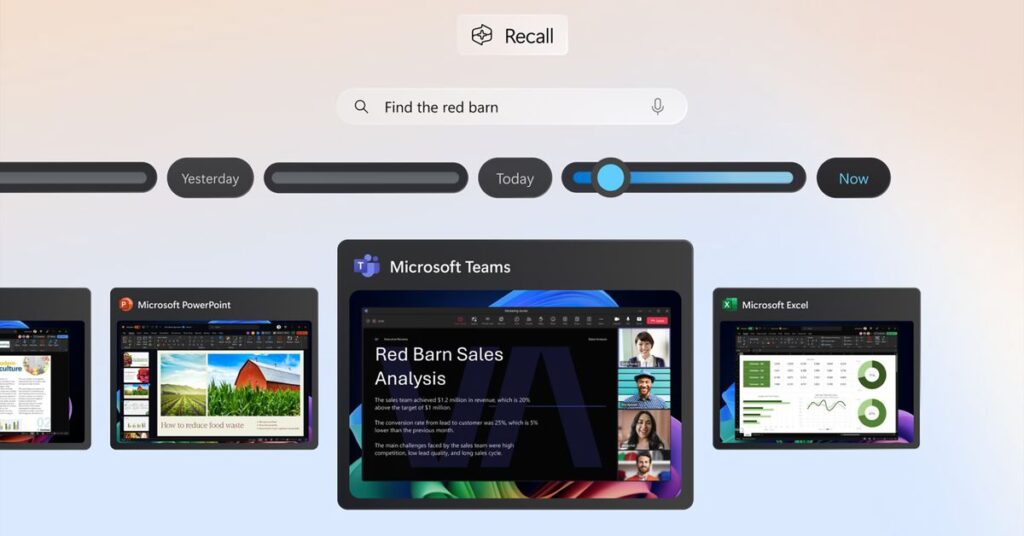Microsoft launched its new Copilot Plus computers last week, aiming to bring a new wave of artificial intelligence capabilities to Windows that are unique to new laptops. Now, less than two weeks later, Windows enthusiasts have successfully hacked the Recall feature of Microsoft’s flagship AI-powered software, allowing it to run on unsupported hardware.
Recall leverages the native AI model on the new Copilot Plus PC to run in the background and take snapshots of anything you do or see on your PC. You’ll then have a browsable timeline and the ability to search for photos, files, conversations, or anything else on your PC. Microsoft positions Recall as requiring the latest neural processing units (NPUs) installed on new PCs, but you can actually make it run on older Arm-powered hardware.
Windows watcher Albacore has created a tool called Amperage that enables Recall on devices with older Qualcomm Snapdragon chips, Microsoft’s SQ processors, or Ampere chipsets. You need to install the latest Windows 11 24H2 update on one of these Windows on Arm devices, and then the tool will unlock and enable Recall.
Currently, this only applies to older versions of Windows on Arm hardware, but considering AMD and Intel will launch Copilot Plus PCs soon, we may see wider unlocking in the coming weeks or months. Microsoft has now only released AI components for Windows on the Arm platform, which is a limiting factor in making it run on hardware supported by Intel and AMD.
Technically, you can unlock Recall on an x86 device, but the app won’t do much until Microsoft releases the x64 AI components needed to get it up and running. AMD and Intel are rumored to be launching Copilot Plus PCs soon, so it’s likely that Microsoft’s AI component for these machines will appear soon. Earlier today, I managed to run Recall on an x64 Windows 11 virtual machine, just to test out the initial first-run experience.
We’ll likely see more Microsoft Copilot Plus PC features backported to existing hardware soon. In retrospect, unlocking running on older Arm hardware certainly raises questions as to why Microsoft would limit this and many other AI-powered Windows features to NPUs exceeding 40 trillion operations per second (TOPS). on the new device.
Microsoft will likely argue that the 40 TOPS requirement sets the benchmark for future AI-driven experiences, beyond Recall, Image Cocreator and other AI features Microsoft showed off last week. It also ensures that these functions run on a separate NPU, rather than taking over the CPU and GPU and shortening the laptop’s battery life. But the reality is that the Copilot Plus PC is also designed for Microsoft and its OEM partners to sell new hardware at a time when IDC estimates PC sales will grow this year due to the arrival of PCs with artificial intelligence capabilities.

